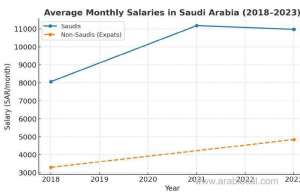Stellar tourism growth and sustained economic performance are driving Abu Dhabi’s thriving real estate market. The UAE capital has become the prime global address for high-net-worth individuals, racking up US$21.6 billion in transactions for 25,046 sales and mortgage deals by the end of 2024.
To ensure the continued growth of the property market, the Abu Dhabi government has introduced key changes to regulations. Although the majority of these changes affect developers in the emirate, the new rules could also influence your decisions as a property buyer or investor.
What Buyers Should Know About the New Regulations
The Abu Dhabi real estate market offers several different types of properties, from apartments to villas. Some developers will also provide buyers with off-plan properties.
Whether you’re choosing from new projects from the best developer in Abu Dhabi or looking at pre-owned units on offer, learning the new rules will allow you to make the right decisions.
All new regulations ensure responsible development and fair practices.
Strict Regulations on Off-Plan Sales
Before developers launch an off-plan project, they are required to register with the relevant regulatory authority. In Abu Dhabi, it’s the Department of Municipal Affairs (DMA).
The DMA has the jurisdiction to manage real estate licensing, project cancellations, and escrow accounts.
The registration ensures that the developer has carried out the necessary steps to secure the land and the means to complete the project. Both entail financial stability. When shortlisting off-plan developments, make sure the developer can show the required documents.
The new regulation also obligates the developer to open an escrow accountwhere you, as the buyer, will be depositing your payments. The escrow account guarantees that the developer uses the payments solely to cover construction costs and other relevant project expenses. It protects buyers like you from the risk of delayed project delivery or fraud.
Establishment of Owners’ Associations
When you buy from Bloom property’s available units or any new multi-unit development, you can be part of an owners’ association.
The owners’ association will be a separate legal entity that holds the title to common areas of the multi-unit development. The provision of the association ensures proper management and maintenance of these common spaces.
Real Estate Financing
Under Abu Dhabi’s real estate law, off-plan units can be mortgaged, with the loan amount paid into an escrow account and reserved exclusively for the purchase price. But developers can’t mortgage the project’s land or any related real estate rights if they intend to use the proceeds to finance construction where escrow funds are insufficient for project completion.
Developers must inform buyers of any such mortgages and release them once the debt is fully repaid from sales proceeds.
If a buyer defaults on mortgage installments, banks can enforce immediate repayment through a summary court without requiring a separate judgment. Compliance with these provisions is essential to ensuring the security of Abu Dhabi property investments.
Ensuring Compliance
The recent rules on real estate come with their corresponding penalties for violators. For example, failure to secure the required licenses and registration from the DMA will result in fines ranging from AED 100,000 to a maximum penalty of up to AED 2 million and imprisonment.
Any unlicensed individual or entity selling property or misusing the payments of buyers and not complying with escrow account requirements will also be violating the new regulations.
What First-Time Buyers in Abu Dhabi Must Consider
An Abu Dhabi property is a lucrative investment, even if you don’t initially buy with the intent to resell. Developers follow regulatory frameworks that facilitate transparency and ensure protection for buyers and investors. In addition, the real estate market is continually growing and promises decent returns.
With these opportunities, it is vital to get everything right when you’re buying real estate in Abu Dhabi for the first time.
Consider the following steps.
Determine your budget.
Along with market growth comes a rise in prices. The good news is that Abu Dhabi’s increase in property prices is more restrained than in Dubai.
Apartment prices in Abu Dhabi climbed to 9.88%, and villas rose to 11.51%, whereas in Dubai, apartment prices have surged to 19.43%, and villas increased to 20.28%. A steady housing supply is keeping prices from skyrocketing to unprecedented levels.
The budget you may have prepared a year back may not be sufficient this year anymore. Check current listings for neighborhoods you prefer and see the average selling prices of properties you’re interested in.
Better yet, consult with your real estate agent about property prices in your preferred areas.
Be aware of the process for buying real estate in Abu Dhabi.
Although you’ll likely work with a real estate agent who will have extensive knowledge of the legal process, it is still advisable to be aware of them yourself.
The process of transferring property ownership involves several key steps. First, you and the seller must sign a memorandum of understanding (MoU) to formalize the agreement. Next, you need to get a no objection certificate (NOC) from the developer. The NOC ensures the property has no outstanding issues that could derail your purchase.
You then make a payment, typically through a manager’s check. You and the seller then meet at the Land Registration Department to finalize the transfer. Once the process is complete, you receive a new title deed, officially confirming your ownership.
Choose the right developer.
Whether you’re buying off-plan or from a completed project, a thorough evaluation of the developer is critical to your purchase. The right developer ensures that the property will be or has been made according to exceptional standards.
Your real estate agent will be able to point you in the right direction since they would know which developers have an impeccable reputation and the best portfolio.
Complete all required documents.
When you’re working within a timeline, it’s best to prepare all the necessary documents. This can include bank statements and your Emirates ID if you’re applying for a loan to finance the purchase.
Work with your real estate agent to ensure you don’t overlook any required document because doing so could stall the process.
The Abu Dhabi property market continues to grow, and regulators intend to keep it that way by introducing rules that ensure fair, honest practices and protect buyers. Stay informed about the real estate market to safeguard your future purchase.







